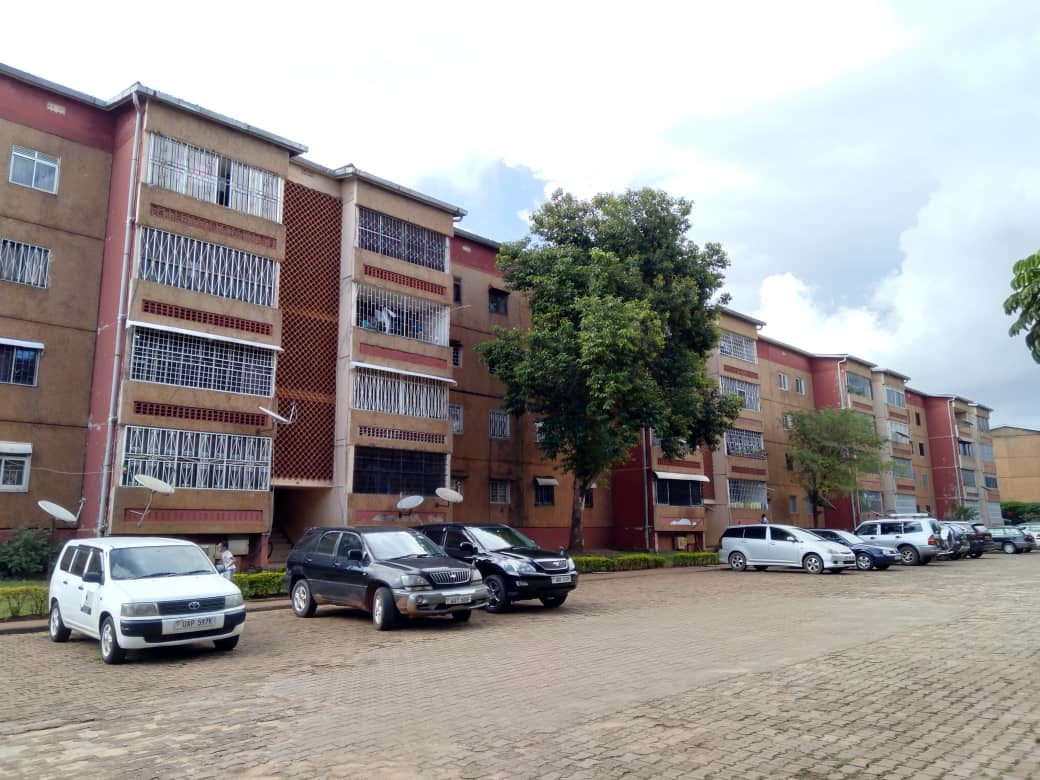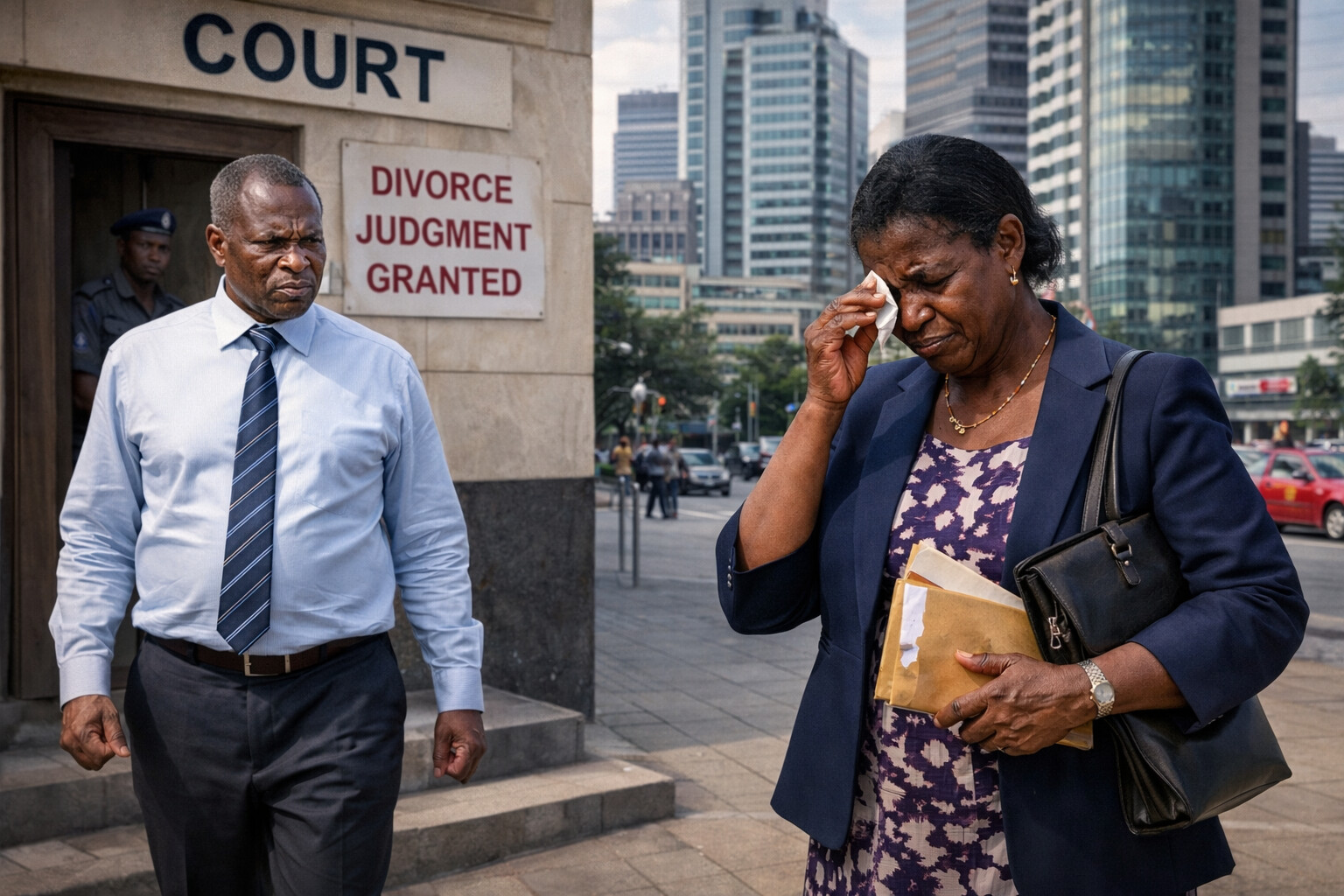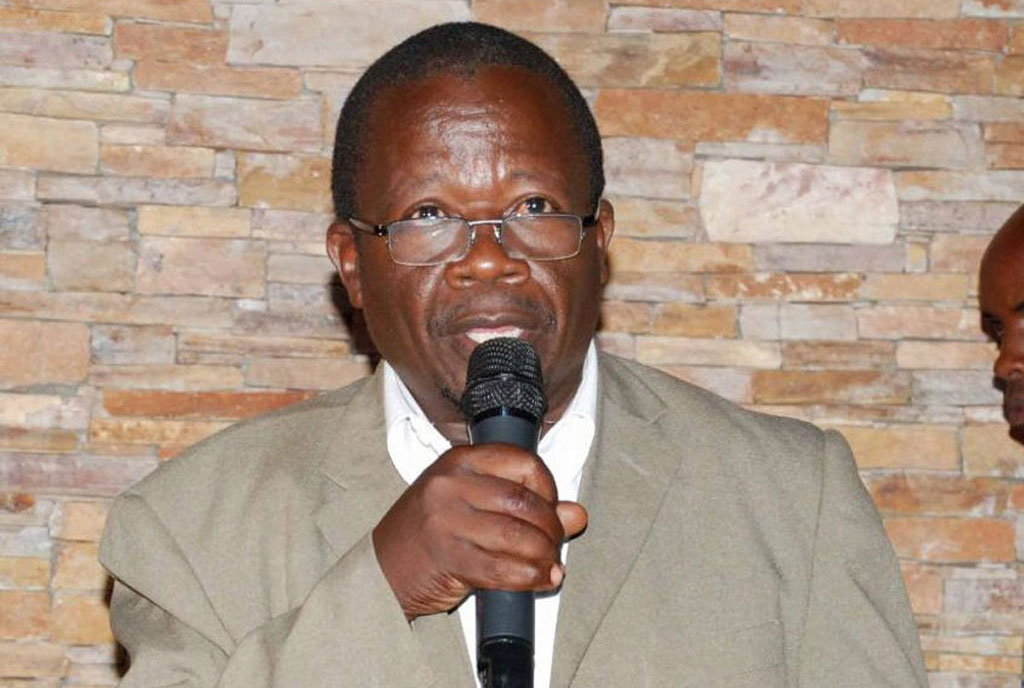In a long-standing property dispute, the High Court has ruled that two properties, a flat in Bugolobi and a residential house in Nabweru, belong jointly to the divorced couple, Florence Nyesigaomwe Ubriza and James Mugisha.
In contrast, court ruled that the land in Rukungiri belongs solely to Mugisha.
Delivering her judgment on October 29, 2025, Justice Alice Komuhangi Khaukha said that although the couple’s marriage had already been dissolved by consent, the dispute over property distribution had to be settled based on contribution and usage.
Florence Nyesigaomwe filed for divorce in 2017, accusing her husband, James Mugisha, of desertion and seeking custody of their daughter, Theresa Ayebare Mugisha, permanent alimony, and division of property.
Mugisha responded with a cross-petition, accusing Nyesigaomwe of adultery and also asking the court to distribute the family property.
In 2019, both parties signed a partial consent judgment dissolving the marriage and granting Nyesigaomwe custody of their daughter. The only remaining issue was how to divide their assets.
The couple had been married in December 1991 at Kinyasano Cathedral, Rukungiri, and lived in Mombasa before returning to Uganda. They later moved to London.
The case centred on three properties: Land at Kasheshe, Buyanzha (Kigezi Ruzhumbura Block 10 Plot 55) in Rukungiri; Flat 9D1 Bugolobi, Kampala, and a residential house in Nabweru, Wakiso.
Edson Kaliba, representing Nyesigaomwe, argued that the Rukungiri land was acquired while the couple were already living together and should be treated as matrimonial property since it was intended as family farmland.
He relied on the Court of Appeal case Ambayo Joseph Lwaigo v Aserua Jackline (2015), asserting that contribution could be direct or indirect, and that payment of bride price before their church wedding showed there was a customary marriage at the time the land was bought.
But Gerald Niwagira, the lawyer for Mugisha, countered that the land was bought on 17 March 1991, nine months before the church wedding, and was paid for solely by his client from his salary and a contribution from his late father.
He denied any customary marriage, saying the bride price was paid “as part of the wedding process, not a traditional marriage.”
On the Bugolobi flat, Nyesigaomwe’s lawyer said she contributed Shs 2.5 million from the sale of her container to pay for goodwill when they moved from Mombasa in 1994. The flat, he said, became their family home until they left for London in 2001.
Mugisha’s lawyer disagreed, saying Mugisha alone paid for the flat using a loan from Housing Finance Bank, later cleared with Barclays Bank, and that he registered it in his sole name after the couple had already separated.
On the Nabweru property, Nyesigaomwe’s lawyer insisted she bought it “for their daughter Theresa” for Shs 11.5 million and built the house herself. He said Mugisha’s claim of contributing Shs 4 million was inconsistent and unsupported.
Niwagira maintained that Mugisha made a financial and non-monetary contribution since the house was identified by his brother, Lt. Col. (Rtd) James Tumusiime, and used by Mugisha’s relatives as a family home. He argued that “the couple furnished the house together and used it during holidays in Uganda.”
In her ruling, Justice Komuhangi extensively cited previous rulings on matrimonial property, observing that property could be shared depending on each spouse’s monetary or non-monetary contribution.
“Courts must look at the contribution of the spouse not registered on the property in its acquisition,” she said.
“The contribution may be monetary or non-monetary, direct or indirect.”
On the land in Rukungiri, the judge agreed with Mugisha, noting that the sale agreement proved the land was bought on 17 March 1991, before marriage.
“The petitioner (Nyesigaomwe) has not adduced sufficient evidence to prove that she was customarily married to the respondent (Mugisha) or that she cohabited with him when the property was acquired,” the judge ruled.
She said the land was used by Mugisha’s late father for grazing and never by the couple, concluding that it was not matrimonial property.
On the flat in Bugolobi, Justice Komuhangi found that both parties contributed, even if indirectly.
“It was the petitioner (Nyesigaomwe) who initiated the process of acquiring the flat as a home,” she noted. “The payment made by the respondent (Mugisha) after the flat had been solicited by the wife was the same transaction.”
The judge added that the flat became their marital home, and Mugisha later benefited from being a sitting tenant when he acquired ownership from the National Housing and Construction Corporation.
She therefore declared the flat matrimonial property, ordering that Mugisha take 60% and Florence 40% of its value. If Mugisha fails to compensate Florence within a year, the flat will be sold and the proceeds divided accordingly.
Regarding the house in Nabweru, the court found Nyesigaomwe had made the larger contribution but recognised Mugisha’s indirect role.
“The respondent (Mugisha) failed to adduce sufficient evidence that he made any financial contribution,” the judge said.
“However, he made a non-monetary contribution through his brother and relatives who supervised construction and occupied the house.”
The court also ruled that the house, though bought in their daughter’s name, was effectively the couple’s “Ugandan home”, since they lived there during holidays.
It was therefore declared matrimonial property, to be shared with 70% going to Nyesigaomwe and 30% to Mugisha.







